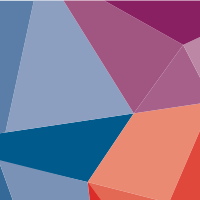Roodabeh Akbari (رودابه اکبری)
Humboldt-Universität zu Berlin
Institut für deutsche Sprache und Linguistik
My Work as a student assistant in C05 consists in building corpus and annotation of the data we collect through our empirical studies. I annotate texts produced in different situations as emails, oral conversations and with different addressees. Metalingustic awareness is an important part of our discussions.
In C04 i worked mainly on the annotation of compound nouns in the Falko-Corpus, contributing to release an annotation-guideline. We investigated how learners of German use noun modification in comparison to L1-German speakers.
We investigated also narration-like text characteristics of argumentative essays of both native speakers and learners of German as a foreign language.
Projects
C05
Young adults’ specialized register knowledge: Modeling late linguistic development in L1 and L2
C04
Register knowledge in advanced learner language
Contact
Humboldt-Universität zu Berlin, Dorotheenstraße 24, 10117 Berlin
roodabeh.akbari@hu-berlin.de
Publications & Presentations
Lüdeling, Anke; Lukassek, Julia; Akbari, Roodabeh (2023) Guidelines for the Morphological Annotation of Nouns in the Falko Learner Corpus In: REALIS: Register Aspects of Language in Situation [DOI] [PDF] [ViVo] These guidelines describe the annotation of different types of nominal word forma-
tion in German. We also report on the evaluation of these guidelines in the Falko
corpus.Lehmann, Nico; Serova, Dina; Lukassek, Julia; Döring, Sophia; Goymann, Frank; Lüdeling, Anke; Akbari, Roodabeh (2023) Guidelines for the annotation of parameters of narration. In: REALIS: Register Aspects of Language in Situation [DOI] [PDF] [ViVo] The present guidelines describe the annotation of narrative phenomena on the clause level, using a combination of ideas and methods from linguistics and lit- erary studies. The main categories marking the discourse strategy “narration” in stretches of text have been narrowed down to mediacy, i. e. involving a narrator, and sequentiality of events. This document specifies how to define mediacy, and in turn determine whether a narrator is present, as well as how to identify events and their sequential ordering. Lastly, a functional layer annotation is proposed which allows researchers to compare different types of narrative instances. This offers a basis for investigating a potential narrative register which is said to be important for many kinds of register studies.Veenstra, Tonjes; Krifka, Manfred; Akbari, Roodabeh; Buchmüller, Olga; Chark, Jordan; Döring, Sophia; Golcher, Felix; Schmidt, Peter (2023) Podcast: Sprachen aus dem Schnellkochtopf: Register in Kreols (Teil 1) [ViVo] Kreolsprachen sind ein Wunder der Linguistik. Innerhalb weniger Generationen entstehen diese Sprachen dort, wo Menschen ohne gemeinsame Sprache miteinander kommunizieren müssen. Unser Projekt A02 "Speaker's choices in a creole context: Bislama and Morisien" untersucht zwei Kreolsprachen aus Melanesien und Mauritius. Wir sprechen mit Manfred Krifka und Tonjes Veenstra.Lüdeling, Anke; Akbari, Roodabeh; Buchmüller, Olga; Chark, Jordan; Döring, Sophia; Golcher, Felix; Schmidt, Peter (2023) Podcast: Was ist ein Register? [ViVo] Was ist damit gemeint, wenn wir in der Linguistik von "Registern" sprechen und warum ist das überhaupt interessant? Wir zeigen Beispiele dafür, wie Sprecher*innen zwischen Registern wechseln und was passiert, wenn das falsche Register gewählt wird. Anke Lüdeling erzählt uns in einem Interview, wie die Idee zu dem Sonderforschungsbereich entstanden ist.
(Vielen Dank an Onur Özsoy, der uns das Telefon-Beispiel eingesprochen hat und an Andreas Nolda für die Orgeleinspielungen!)